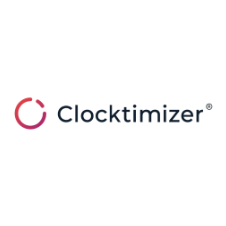Clocktimizer: P3 Conference 2020 – The wrap up
P3 has long been one of our favourite conferences. Held yearly in Chicago in June, it covers all things Project Management, Pricing and Process Improvement. We have been sponsors of the event for a number of years now, not least because P3 features fascinating speakers talking on topics close to our heart. This year was no different. In spite of the challenges posed by Covid-19, P3 went ahead in an online forum. We were lucky to spend four days learning about everything from the rise of the citizen data scientist to new strategies for value based pricing.
For as long as we have been attending, we have also been sharing a wrap up of the best bits of the event. So, if you were unable to attend this year, grab a cup of coffee and settle in! Here’s our favourite bits of P3 2020.
Pricing for value at front and center
As we explored in our recent fireside chat, pricing for value is at the forefront of legal consciousness right now. The current pandemic has led to financial uncertainty and in turn, to an increased focus on client retention. Inevitably, that means increased transparency and improved pricing structures. Thus it was no surprise that two of our favourite sessions focused on pricing strategies and how to integrate them at the partner level.
The first, Developing Partners’ Pricing Competence, held on day one, was full of practical advice. Colin Jasper and his panelists Pier D’Angelo (Chief Strategy Officer ast Allens), Ethan Williams (Managing Director at PwC) and Keri Cupples (Global Director of Strategic and Initiative Pricing at Dentons) walked through reasons and strategies for how to include partners in pricing conversations. Having covered the why (as we explore further here) they delved into the range of tactics available to push pricing at every level.
Highlights included Keri’s discussion of how to align global and local strategies to create consistency (while respecting the differences between markets) at a firm as large as Denton’s. We also enjoyed listening to Pier share the importance of building a portfolio of case studies, which include client interviews, to share with partners as inspirations. After all, you’re going to find it difficult to get anyone to make a change without sufficient evidence of success.
The second session which caught our attention was led by the internationally recognised Richard Burcher. Richard is a pricing professional working with firms around the world to develop unique risk sharing pricing strategies. In his session, titled Entrepreneurial Pricing – A Client-Centric Approach to Fully Monetizing Our Value, Richard shared real world examples of successful pricing arrangements. It was unique to see use cases where novel pricing approaches had left clients satisfied and had actually increased the revenue for a firm over the usual hourly billing approach. The first two examples, covering a 50% up or down approach (dependent on success) were certainly positive. We were particularly impressed however with the approach of the firm which chose to take a 7.5% cut of the money a client would save, as a result of successful litigation. Said firm managed to walk away with a fee three times as high as their hourly rate, along with an extremely satisfied customer. We would also like to highly commend Richard’s excellent slides – including one particularly hideous dog.
We all have the potential to love data
One of our favourite sessions, held by James Michael Boyer and Daniel Pope of Ballard Spahr, had one of the more intriguing titles of the event. Titled The Emergence of the Citizen Data Scientist, it covered how and why we should all take a more active interest in data science. As the panelists noted “we should do more than just look to specialists for answers. Data is useful to LPMs, Pricing and Marketing departments.” The tools needed to analyse data are growing increasingly easy to use, even for those without a background in data analysis.
Interestingly, James shared the importance of evaluating your data streams. Again, this is a topic we have covered before in our firmwide analytics series here and here. He divided data into roughly three categories – bad data, missing data and dirty data. For the first two categories James stressed that the problems here were eminently fixable. Bad data is at least being recorded, so you simply have to address the recording error. Missing data simply requires you to start collecting it. However, dirty data (data which is correct but not what you need it to be) often poses a problem. At Ballard Spahr they had a lot of financial data which wasn’t designed to be client facing. Most internal dashboards were based around GL dates which are irrelevant for clients. It required a complete rebuild by the tech team in order to present the data in a usable way by both clients and internally.
The final point which was shared (as a bit of a lightbulb moment for the panelists) was the importance of presenting your data in a relevant format. So if you have geographical data, present it on a map. If it is date data, present it in a calendar. It may sound simple, but visualisation is often as important (if not more) as the analysis of the data itself.
Clocktimizer front and center
Finally, we were lucky to be able to host our own booth throughout the conference. As a company based in the Netherlands, we’re no stranger to the online demo. Clearly, this was our time to shine! As usual, we were lucky to meet a lot of new faces and some familiar ones during our demo session. This year we chose to focus on the power of our budgeting tools and how Clocktimizer can support pricing and collection discussions with clients. In light of the ongoing uncertainty posed by Covid-19, we believe these tools will become even more essential for the modern law firm.
We also were excited to see the discussion by Pepper Hamilton, titled Leveraging Matter Metadata to Determine Scope and Pricing Strategy, which featured some of the ways Clocktimizer has been enhancing the firm’s data driven approach. Marc Perreault (Pricing and Project Manager) explained how the quality of Pepper’s metadata has been improved by relying on Clocktimizer’s natural language processing (as opposed to poorly applied codes). Learning how invaluable our platform has been, both for visualising data, and for understanding matters at Pepper was a big boost for the team. Particularly when we learned how it has improved client satisfaction.
The second part of the talk, led by Andrew Medeiros (Director of Practice Solutions) covered the next generation of AI tools at Pepper. Andrew and his team have integrated data from the Clocktimizer API, along with alternative data streams, to make a sophisticated pricing tool for their construction department. We’re looking forward to seeing what this approach inspires in other law firms. Especially since Andrew pointed out that their AI components were built from open source software.
A final thanks to LMA
Finally, we wanted to share a huge thanks to LMA for rising to the challenge and hosting an excellent P# conference in spite of incredibly challenging conditions. As usual the whole LMA team was professional and helpful and the conference itself well managed. We greatly enjoyed the distraction provided by the long list of excellent speakers. We hope next year returns us all to Chicago!!



